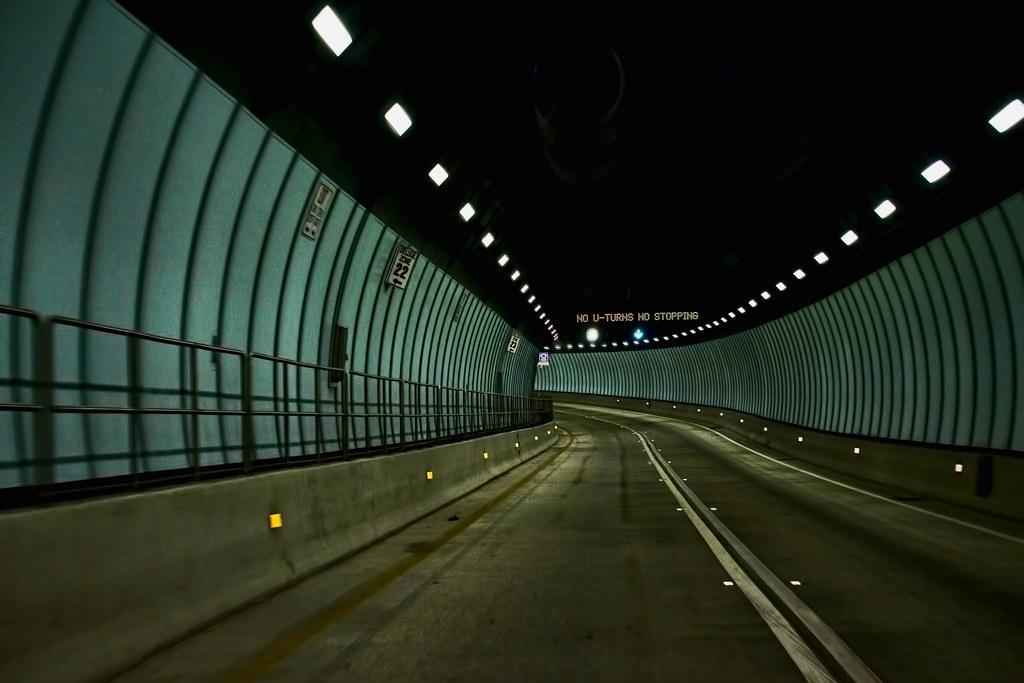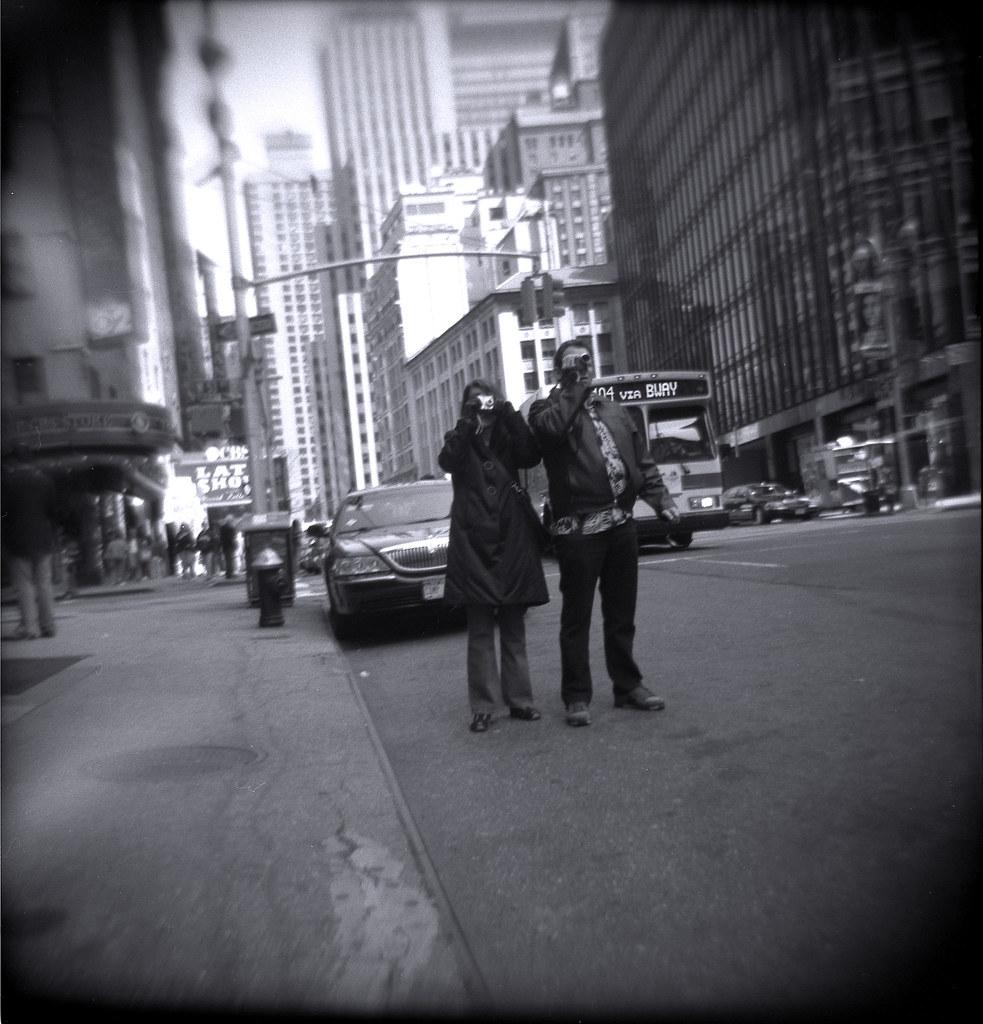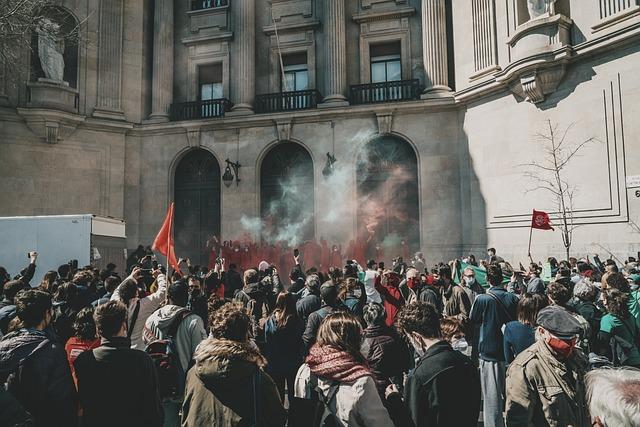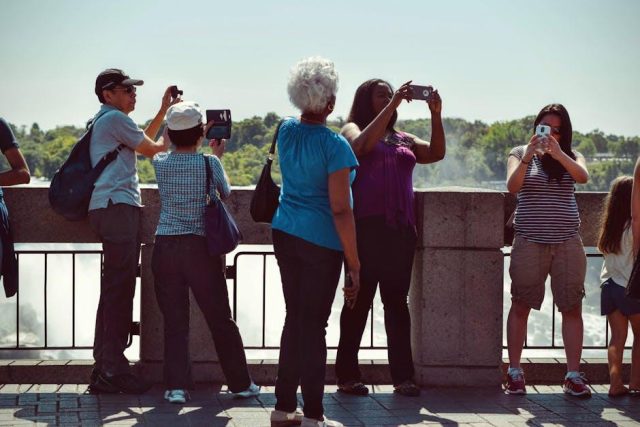In the vibrant tapestry of global travel, where cultures intertwine and horizons expand, the unpredictable rhythm of local life can sometimes present a conundrum for the intrepid explorer. Amidst the allure of new experiences and undiscovered landscapes, travelers may find themselves at a crossroads when faced with the unexpected hum of local protests or strikes. These events, often steeped in rich historical context and fervent passion, can transform bustling streets into arenas of expression and resistance. As the world becomes increasingly interconnected, the question arises: should tourists, in their quest for discovery, steer clear of destinations embroiled in civil unrest, or do these moments offer a unique lens through which to understand a society’s heartbeat? This article delves into the complexities of navigating travel plans amid local upheavals, weighing the potential risks and rewards for those who wander into the eye of the storm.
Understanding the Local Context and Its Impact on Travel
When planning a trip, understanding the intricacies of the local context can significantly enhance your travel experience. Events such as protests or strikes are deeply rooted in cultural, political, and economic circumstances that may not only impact your itinerary but also offer a unique lens into the local society. Being aware of these situations can help you navigate your journey more safely and respectfully.
- Safety Concerns: Large gatherings can escalate quickly, potentially posing risks to personal safety. Travelers should stay informed about any ongoing or upcoming events through reliable local news sources.
- Transportation Disruptions: Strikes, especially in public transport sectors, can disrupt travel plans. Anticipate potential delays or cancellations and consider alternative routes or modes of transport.
- Cultural Sensitivity: Participation in or observation of local protests may be seen as intrusive or disrespectful. Respect the local sentiment and assess whether your presence might be perceived as supportive or obstructive.
By incorporating an understanding of the local context into your travel plans, you not only safeguard your personal experience but also show respect for the host community’s current challenges and concerns.

Balancing Safety and Experience During Unrest
Navigating the delicate balance between ensuring personal safety and savoring a genuine travel experience can be challenging when local protests or strikes arise. While some travelers might see these events as an opportunity to witness history unfolding, others may prefer a more cautious approach. To make informed decisions, consider these aspects:
- Stay Informed: Before embarking on your journey, research the political climate and potential unrest in your destination. Reliable news sources and local advisories can provide valuable insights into the situation.
- Assess Risk Levels: Not all protests are volatile. Some are peaceful demonstrations that pose minimal risk to tourists. Evaluate the nature and scale of the unrest to determine whether it’s safe to proceed with your plans.
- Adaptability: Be prepared to adjust your itinerary. Flexibility can help you avoid hotspots while still enjoying the essence of your trip. Having alternative plans or destinations can ensure that your travel experience remains enriching and safe.
Travelers should weigh their comfort levels with the potential risks and rewards of experiencing a destination during times of unrest. With the right precautions, it is possible to respect local movements while ensuring personal safety, thereby enriching the travel narrative without compromising security.

Ethical Considerations for Tourists Amid Protests
When traveling during times of civil unrest, tourists face a delicate balance between respecting the local struggle and satisfying their wanderlust. Ethical considerations come to the forefront, compelling travelers to weigh their actions carefully. Tourists should be aware that their presence might inadvertently be seen as an endorsement of the status quo or, conversely, as support for the protesters, depending on the local context. This awareness demands a thoughtful approach to travel plans and on-the-ground behavior.
- Understanding Local Sentiments: Tourists should educate themselves on the historical and cultural context of the protests or strikes, gaining insights into the grievances and demands of the locals.
- Assessing Impact: Consider how tourism may strain local resources or affect the dynamics of the protests. In some cases, it might be more responsible to reschedule the trip.
- Engagement vs. Observation: While some might feel compelled to participate in protests, it’s crucial to remember that these events are primarily for locals. An outsider’s involvement might be misinterpreted or unwelcome.
- Support Local Economies: If traveling is unavoidable, tourists can support local businesses that may be suffering due to decreased foot traffic, while ensuring their patronage doesn’t unintentionally exacerbate tensions.
Ultimately, tourists should strive to minimize their footprint while maximizing their understanding, showing solidarity through informed choices and respectful behavior.

Practical Tips for Navigating Destinations in Turmoil
When visiting a destination experiencing civil unrest, maintaining awareness and adaptability is crucial. Stay informed by regularly checking local news outlets and official government advisories. It’s wise to register with your country’s embassy, ensuring you receive timely updates and assistance if needed. Embrace a flexible itinerary, allowing you to adjust plans as situations evolve. Always have a backup plan for accommodations and transportation.
- Blend in with the locals by dressing conservatively and avoiding flashy attire or accessories.
- Avoid large gatherings or demonstrations; even peaceful protests can turn unexpectedly volatile.
- Communicate your plans with family or friends, sharing your location and travel updates regularly.
- Carry essential documents like passports and identification in a secure, easily accessible place.
- Stay connected by keeping your mobile phone charged and having a local SIM card for emergency communication.
Understanding cultural nuances can also be beneficial. Researching local customs and social dynamics not only enriches your travel experience but also helps in navigating sensitive situations. Remaining respectful and open-minded can go a long way in ensuring a safe and fulfilling journey.
Future Outlook
In the ever-evolving tapestry of global travel, the question of whether to journey amidst local protests or strikes weaves itself into the narrative of responsible tourism. As the sun sets on our exploration of this delicate topic, we find ourselves at a crossroads, where the paths of caution and curiosity intersect.
Ultimately, the decision rests in the hands of each traveler, guided by their values, priorities, and sense of adventure. Whether choosing to witness history in the making or opting for the serenity of an untroubled journey, travelers must weigh the potential risks against the rewards. In this dance between discovery and discretion, there lies an opportunity to reflect on the profound impact of our choices, not only on our personal experiences but on the communities we touch.
As we close this chapter, let us remember that travel is more than just a physical journey; it is an odyssey of understanding and empathy. With eyes wide open and hearts attuned to the pulse of the places we visit, may we all navigate the complexities of our interconnected world with wisdom and respect. Safe travels, wherever your path may lead.


































